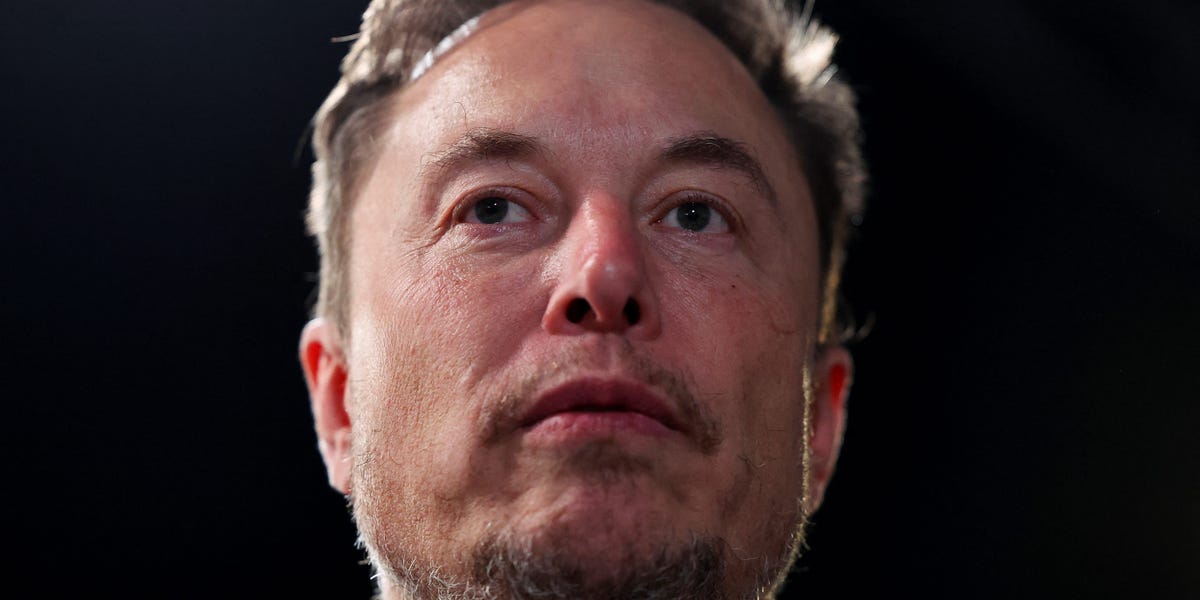- A Congressman is urging Elon Musk to give SpaceX Starshield access to US forces in Taiwan.
- Refusal could breach SpaceX’s contractual obligations with the US government, Forbes reported.
- Musk’s significant business ties in China may be a factor in his response.
Elon Musk is facing pressure to provide SpaceX’s Starshield satellite network to US defense personnel in Taiwan, according to Forbes.
Wisconsin GOP Rep. Mike Gallagher, in a letter to Musk first obtained by the outlet, reiterated to the businessman that SpaceX had a contractual commitment to give the US Defense Department the ability to use its satellite communications service.
It is unclear if other members of Congress also signed on to the letter, which was dated February 24, Forbes reported. However, the outlet described a “group of US lawmakers” were involved in the calls for Musk to provide satellite access to US defense forces in Taiwan. The Wall Street Journal, which later reported on the letter, only noted Gallagher’s involvement in writing the correspondence.
In the letter, Gallagher, the chair of the House select committee on the Chinese Communist Party, said the DoD is appropriating “tens of millions of dollars” for Starshield, which was designed for government use and utilizes satellites in low-Earth orbit to transmit imagery to military agencies.
The Starshield satellites, designed specifically for national security customers, provide essential internet access in remote locations or those impacted by natural disasters or war zones and have become crucial to Ukraine’s battle against invading Russian forces.
“I understand that SpaceX is possibly withholding broadband internet services in and around Taiwan — possibly in breach of SpaceX’s contractual obligations with the US government,” Gallagher wrote in the letter, per Forbes.
“A robust communication network for US military personnel on and around Taiwan is paramount for safeguarding US interests in the Indo-Pacific region,” the congressman continued.
Gallagher, in the letter, then raised the specter of potential Chinese aggression toward Taiwan as he emphasized the significance of ensuring the safety of American personnel in the region.
“American service members in the Western Pacific would be put at severe risk,” he wrote Musk in the letter, according to Forbes.
The letter then called on Musk to brief the select panel regarding Starshield’s capabilities in Taiwan by March 8, Forbes reported.
Forbes reported that it’s “unlikely” that Musk could be pushed to bring Starshield to Taiwan due to the prodding of Washington lawmakers, but pointed to the crucial nature of Space X’s contracts with the military.
Gallagher led a bipartisan delegation of five US lawmakers in a visit to Taiwan this week, which The New York Times reported aimed to reassure the island nation that the US would support its security interests in the face of increasing pressure and aggression by China.
“America stands with Taiwan, and you can draw upon a deep reservoir of friendship and support from the United States Congress,” The Times reported Gallagher told Taiwan’s president-elect, Lai Ching-te, who takes office in May.
The request could present challenges for Musk, who has considerable business ties in China, where Tesla has a significant manufacturing presence.
Musk hasn’t been shy about discussing the tense relationship between Taiwan and China. In 2022, he floated the idea that the conflict between the two countries could be put to rest if Taiwan became a “special administrative zone,” similar to Hong Kong.
Taiwan officials have fired back over Musk’s remarks that the country is an “integral part of China,” as the country has been governed independently of China since a civil war in 1949. Taiwanese foreign minister Joseph Wu responded to Musk’s inflammatory remarks in a September 2023 post on X, writing: “Listen up…Taiwan is not part of the PRC & certainly not for sale!”
Gallagher’s office and representatives for SpaceX did not immediately respond to a request for comment from Business Insider.









